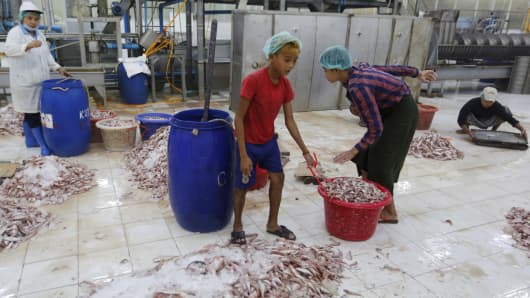Over the last year, a series of Pulitzer Prize-winning news stories have revealed human trafficking, forced labor, and other abuses in the seafood industry. The complexity of global seafood supply chains and significant gaps in regulation have made it very difficult to track, much less remedy, these abuses.
Recently, the U.S. government has begun to expand its efforts to monitor and better regulate the seafood industry, recognizing the links between environmental sustainability and food safety. But these efforts have paid too little attention to addressing labor abuses. The solution to these labor problems will require increased regulation, improved corporate sourcing practices, and greater transparency, all predicated on a sharing of responsibility between industry, governments and other stakeholders.




